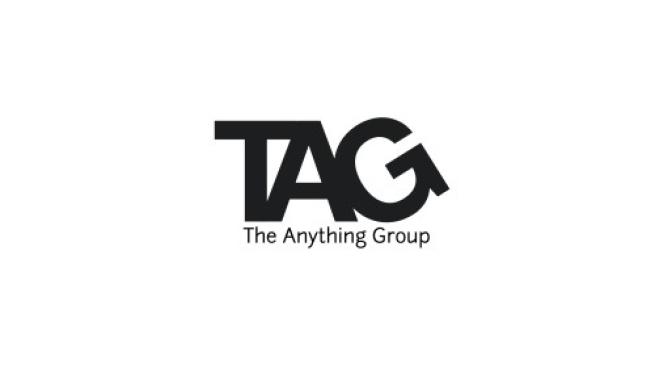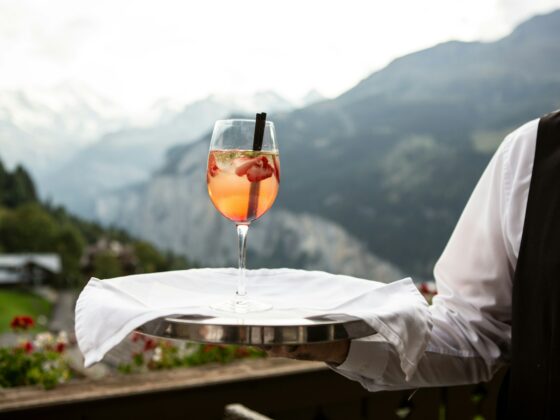Danica: The phrase “guest experience” is so overused in our industry. You know, you just walk down ITB or WTM or HITEC and it’s like guest experience, guest experience. And so initially when I was thinking of the name [of my new company] I was thinking, okay, maybe I should avoid guest experience. But actually, in my opinion, this is guest experience. When my mum stays at your hotel, how does she experience it? What does she say? And I really want to home in on that. And no disrespect to the positioning of other companies out there, but, you know, like financial controllers report, is it really guest experience? I don’t think so. So I’m kind of sticking to the meaning of the true meaning to me of what guest experience is.
Josiah: I’d love to hear you talk more about that, Danica, because I agree with you. It is such a powerful thing. And it also feels overused. So for maybe our listeners that are probably so familiar with this, they spend probably most of their days trying to improve guest experience. I want them to really understand the real opportunity here. I wonder if you could elaborate a little bit more on why guest experience really matters so much.
Danica: Yeah, I mean, it’s the beauty of everything that we do, right? If your guests aren’t happy, then at some point, depending on your location, you’re going to close your doors, you know, ultimately. So it’s just really bringing guest experience of literally how does the guest experience your hotel to the forefront. So I was having a conversation recently about, you know, digitalizing the guest journey. of which we’ve all spoke about for many years, and hotels and accommodation providers are doing that so cool. And in my personal opinion, you know, if we look at the look and book stage, you know, the first time I find your brand, I search you, the booking experience, as amazing as that is, and as exciting as that may be, the moment I arrive on property is really when the guest experience starts. When I finish, you know, if my room is not clean, everything prior to that is irrelevant. And even post, even if I had a great stay and a great pre-arrival experience, it’s very unlikely, I think, that my friends and my family who aren’t in the industry are going to recommend that hotel based on the booking experience or based on, you know, the personalization experience. Yes, it adds to it, but it’s really, you know, Did you enjoy your stay? Yes or no. How would you rate it out of 5 or 10 on TripAdvisor or Booking.com or Google? That’s really to me. So it’s kind of like guest expectations and how do you manage and meet guest expectations. And that’s where hotel technology is getting really exciting with personalization and AI. But the guest experience really is when my mother stays at your property, what is she going to say afterwards? And I think we, some people are losing sight on that, you know, and others are completely obsessed with, you know, guest intelligence and guest data and guest sentiment. So I’m kind of fighting that crusade of reminding clients and reminding the industry, like it is, how does the guest experience your property?
Josiah: I appreciate you elaborating on that because it’s something that is so fundamental to hospitality, something I’m obsessed with and thinking about how do we get better. And what I love about it is the timeless nature for all the reasons that you described. It’s so timeless, but I often find, I even find this myself, there’s so many new things and you get kind of distracted by the new latest thing. This is very timeless. There are new technologies, you know, that can help you with that. But it’s a timeless thing, and I’m curious, I guess, to approach this another way, if you kind of found common hesitations or things that were holding hotel companies back from improving this. Because I think if you talk to the average hotelier, they’re going to say that they want a good guest experience. I’m curious either in what you observed kind of in your work at IPEX or in your work since then, you’ve talked and worked with so many organizations. You know, where does this start to get hung up or you find people aren’t investing as they should be?
Danica: And it’s really interesting, you know, how there is such common themes, one across the segments. So, you know, whether you are a ultimate, you know, five star luxurious brand, a boutique hotel, a hostel, a B&B, across regions, you know, APAC, America, Europe. And then across, I hate to say it, but almost decades now, it’s the same, I’m talking the same things that I’ve been talking about for over 10 years. And unfortunately, it’s, you know, the heart of operations, especially now with all of the cool, shiny technology that we have, is not having a seat at the table in those decision-makings, in those conversations. And I saw this a lot with hoteliers post-COVID. You know, obviously we were trying to fill our hotels again, And I just want to caveat that and say I completely, whilst not understand like for like, I have a lot of empathy for the stress of hoteliers during that time. So it’s no criticism. They have my absolute, you know, I mean, awe of how people survived that period running. But if we look at post-COVID, you know, so many decisions, commercial decisions, revenue-led decisions, excluded operations. And we saw that with guest experience, you know, in terms of online reputation and guest intelligence. So what was happening was you had revenue managers, commercial leaders making, you know, really cool initiatives, deploying WhatsApp messaging, chatbot, really focusing on driving upsell, incremental revenues, and revenues, pre-arrival, you know, the list goes on. But ultimately, there wasn’t the housekeepers to deliver what was being promised. You know, so what we saw in guest intelligence was in 2022, 2023, and it continues this year, is reviews saying things like, oh, my £50 balloon package didn’t arrive. You know, this didn’t happen. Same as sustainability, the same thing, you know, like, oh, hang up your towels and we want to save water. And it’s like, you know, you come back to your room and your towels and new neatly folded on the beds. And so there is still continues to be this gap between operations. and commercial functions that are driving the hotel technology. And also, you know, whether that is property and head office still seeing that. And unfortunately, that that kind of breakdown continues to happen across across the industry.
Josiah: It’s good for our listeners to be aware of that. I do want to paint a picture for what excellence could look like. And you have spoken with and worked with so many organizations. Is there a hotel company that comes to mind as doing a really good job with that? And I wonder if you’d kind of share some detail behind the scenes on what they’re doing that you find compelling or effective.
Danica: Yeah, and I’m, you know, working at Reviper, I was really grateful for the clients because they really did also push the industry. So different spectrums here. So I think brands like Belmond Hotels do it very, very well. You know, they are absolutely obsessed with guest data, and they really are cross-departmental. You know, they’re on top of it, whether you are in procurement and or sustainability or marketing or maintenance, everybody’s talking the same talk. So they’re a brand that I’ve really admired over years. And there’s no coincidence that they have the highest GRIs and continue to have the highest GRIs in the industry. And it’s not just products related. You know, it really is the essence of that. Then there’s… And Danica, sorry if I could just clarify.
Josiah: So for people who are unfamiliar, the GRI would be the…
Danica: Yes, the GRI, so it’s a Global Review Index, it’s called, and it’s from Shiji ReviewPro, and it’s an algorithm. It was created, Josiah, you were probably around creating it, you know, in 2009, I want to say, around about there. And what it does is it’s an algorithm that’s scanning a number of different review sites and crunching that data and putting more weight on the more recency, frequency, volume, et cetera. And GRI is ReviewPro’s, but then there’s a Revinate score, TrustYou score. So it’s really, how is your property perceived online in terms of online reputation?
Josiah: But I appreciate you highlighting that because I guess I’ve heard in some conversations people are thinking, okay, are you just gaming the system and showing up nicely on one site? You can’t do that in these because you’re looking at the holistic. So I just want to emphasize what you’re saying about Belmond that is looking at guest feedback. They’re just interested in holistically what are our guests saying and how do we get better? It’s not like, how do I get better at TripAdvisor or Bookit? You know what I mean? It’s not a marketing tactic.
Danica: No, it’s like obsessed with guest feedback and guest experience. And I’ve had the pleasure of, you know, attending many, many GMs conferences around the world. And it’s so funny, I can straight away without even knowing the clients, looking at the data, see by when I walk into the room, how engaged they are, because scenario A is I have a queue of GMs wanting to talk to me, or scenario B is I have GMs avoiding me. Because they’re like, that’s that girl that’s going to talk to me. That’s the thing that I don’t really look at. And I just monitor what’s on my balance scorecard. So it’s really ironic. And I can walk in and, you know, within a few seconds, soundcheck how engaged they are.
Josiah: What’s the difference? Just I think I want to hear about another brand, but in terms of is it a cultural difference? Is it the leadership at the top of the organization has kind of made this the priority? Or how would you describe the cultural difference?
Danica: It’s definitely culture coming from the top leaders. And also sometimes, maybe not so much now, but kind of two years ago, there was also a lot of educating to do at leadership or owners, specifically owners, you know, maybe being obsessed with TripAdvisor when TripAdvisor would account for 5% of review volume. But I mean, it’s great that they’re obsessed with something. So definitely, I mean, every single brand that I’ve worked with has some sort of guest experience, guest intelligent metric on their balance scorecard, for sure. But the ones that are obsessed understanding and improving all the time, culturally it comes from the top where they are just like, how can we continue to improve? And the ones, the brands that really achieve those really high GRIs continue to move the goalposts forward. And I’m always like, okay, how can we get to the next, to the next, to the next, and really obsess over every single mention, comment, review, and push that forward. And also celebrate success as well. There’s always, you know, you’ll go around the back of house and you’ll see like, you know, best hotel performing, best improved, and that’s great to see. So yeah, it’s a cultural thing that I think comes from the top.
Josiah: Right. And it’s sort of, I like what you just shared there, where it’s motivating the team, because the work of hospitality is hard. And so I see great leaders really investing in keeping people excited, creating that always, how do we get better sort of mentality that you described. And I think, but I also want to pick up on something else you mentioned. You mentioned TripAdvisor, maybe in some cases just 5% of reviews. To me, that speaks to the constantly changing landscape of guest feedback. And 10, 15 years ago, that percentage was quite a bit higher. It’s evolving. What are some of the kind of big changes that you’ve seen in the guest feedback landscape in recent years that our listeners should be aware of?
Danica: It’s huge. So when we look at reviews, let’s start there, the relationship between the big players, Google, Expedia, TripAdvisor, Booking.com, constantly changes. And it’s really difficult to understand what’s what. You might be looking at TripAdvisor and see a completely different page. To me, they continue to do seven different A-B split testings. Google are forever changing their strategies on reviews. TripAdvisor’s motivation is very different to Bookend.com and Google. Google is not a revenue stream, nor is it for Bookend.com. So that changes things. And it’s also what spin do people put on it? And I think as an industry, my concern is how important are reviews because it’s not what it was five years ago. Five years ago, it was on people’s radars. And I’m talking from the big players. We would all meet up. We would all strategize and understand. And that kind of context has gone almost like, you know, it was that ITB. And, you know, there’s been a huge rise of fraudulent reviews in 2024, especially in Q1. So at ITB, I spoke to TripAdvisor, Google, Booking.com, and Expedia. And I was raising this issue with the people that I needed to talk to. And they were all like, what, really? You know, and actually Belmond, they had one of their properties in Rio. Overnight, the general manager logged on and had 4,000 new Google reviews in 24 hours. So it’s a huge, it’s a huge problem. And the hoteliers are like, help, what do we do? And I feel like the industry is just kind of very slow to react. There was a press release last year on Phocuswright where TripAdvisor, Booking.com, Google, Trustpilot and some other consumer facing reviews had declared and created a coalition to kind of combat this. But it was just a press release. There’s not really been much since. So it’s a concern, and I think with the rise of chatbot and AI, so at one of the conferences, somebody was explaining about, you know, the new search trends, and one in three people are now, Gen Zers, are now using ChatGPT for their travel search. So how does reviews fit into that? I think it’s a really exciting time of what does that look like? But, you know, if you look at TripAdvisor’s research, I actually did a GM’s training this morning and I had a slide and it was like, okay, how much unique visits do you think TripAdvisor receives per month? And in October 2024, it was still 180 million unique views. Wow. Yeah.
Josiah: Yeah.
Danica: A lot of people still using it. Exactly. So maybe the review volume’s not there, but I might book on booking.com, leave a review on booking.com, but I might still look at your TripAdvisor page. And unfortunately, there’s just not that research, whereas, you know, eight years ago, I could have whipped out some good research about the relationship between the three players. And that’s missing, I feel, from the industry. And maybe, you know, they’re working on it in the background, but it’s certainly not come to the industry yet. Unless anybody is wrong listening, please let me know, because I would love to kind of know what research we have in the relationship between, you know, the book and funnel across those different platforms now.
Josiah: Well, I’ll certainly include a link to your website and LinkedIn in the show notes where people can be in touch. There’s a wide range of people that listen to the show. If there’s a company that is involved in that, that would be good to know. I’m thinking especially for our hotel leaders that are listening, hearing you share that, for me, emphasizes the need to have listening mechanisms in place because for that general manager that found 4,000 new reviews, you need to be aware of this so that you can flag it, right? That seems step one. Is there other action that you suggest our hotel managers or leaders that are listening to this take to be effective in this new environment?
Danica: Yeah, I think it’s really important and I understand like, you know, I’m coming at it in a very niche way and there’s so much thrown at hotel leaders to be aware of, but I think it’s making sure that you’ve got the basic foundation set up so your team can do the work, you know. If I am a maintenance manager at one of your properties, when I log into guest intelligence or guest reports, don’t show me how’s check-in, check-out, scores, F&B, you know? So it’s really like taking it back to the basics, empowering your teams to understand their roles within guest intelligence and guest sentiment and guest experience. So they come to you and say, hey, listen, there’s a problem. X, Y, and Z is happening. Or I’m not sure. And then you can take it forward. It’s not really for the leaders to have that holistic view. Because you can’t have a holistic view. You need to be in that deep dive level and very functional. The way that revenue needs to be digesting guest intelligence data is different to an F&B manager. So it’s really getting the basics right so your teams can you know, filter up changes, needs, requests, et cetera.
Josiah: Makes a lot of sense, and I think this is the power and the exciting opportunity with the technology because you can have that precision of getting the right information to the right people at the right time. One thing I do want to get your perspective on, so I connected with Adele Gutman, who used to be a ReviewPro customer when she was running, yeah, incredible leader. And so we did kind of this kind of if-only experiment Yeah. So we tried to build this bot to respond to reviews. And it was kind of, you know, 15 years ago or so, a lot of the conversation I had with hoteliers is how to respond to reviews. The big thing that came out of my conversation with Adele was that, yes, responding to reviews is important, but the real power is behind the scenes. And I’d be curious to hear, A, if you agree with that, and then B, kind of what you’ve seen done well behind the scenes to not only kind of listen to the guests, but actually make changes to become better with the feedback.
Danica: Yeah, so I think management response is one of the most underused tools that a hotelier has in their tool belt to be able to impact and influence guest expectations. I caveat that because I have no idea what that’s going to look like in a year’s time. That’s what’s so exciting, you know, with the rise of influencers and TikTok and Instagram, I’m not sure where reviews, what that looks like going forward, but certainly today and historically, If you have a good management response strategy, you can really set the expectations accordingly. And this was really where I fell in love with ReviewPro and management response. So I worked at Apex Hotels, an independent UK hotel chain. In marketing, 2012, you know, fighting the direct fights, everything was about conversion, website traffic, you know how it goes, still the same issues. And at that time they had three London properties and they were number five, number eight, and number 12 on TripAdvisor. And I stumbled, you know, we weren’t really looking at TripAdvisor management response. We didn’t really have a strategy. And I never forget, it was April 2012. And those three hotel pages, the website traffic on TripAdvisor was more than 80,000 unique views, which was kind of equivalent to the website brand.com. And the difference is, is that’s the guests like credit card in hand, ready to book. So it’s like manage the expectations, you know, I have lots of London hotel clients that say to me like, oh Danica, we’re getting hammered on, you know, bathroom sizes or, and it’s like, listen, I don’t come to London to stay in the bathroom all weekend, you know, but if I’m paying 500 euros a night, and the bathroom’s small, and I didn’t know, I’m going to complain. So simple fix, manage my expectations.
Josiah: But it’s interesting, Danica, just if I could jump in on that, because you’re working in a marketing capacity. Marketing is typically trying to make everything look amazing. And so it’s interesting. This is a framework where, yes, you want to communicate the advantages of your hotel, your business, but you don’t want to set them such that people will be disappointed when they arrive.
Danica: Yeah and I think it’s about kind of being quite bold and brave and owning your flaws and celebrating your flaws because you can’t hide them so the more you can put a spin on them you know we have amazing luxurious amenities or in our bathroom or the water pressure or the most I don’t know whatever it is that you have shout about it, but make sure you have a picture of the small bathroom, you know, on your profile, don’t hide it. So I remember at ReviewPro, and this was going back many years ago, I carried out a management response strategy with Kempinski Hotels at that time. They weren’t really responding. And so we looked at the usual metrics, average time to response, management response, ratio, etc. And what was interesting was great, all the metrics improved, which was great. But their perception of value, the value index on their online reputation improved as well. So it’s like, that’s exactly what you need to do. You know, if somebody says the breakfast was expensive, but really delicious, you know, explain in the management response that you source the local port from the local farmer down the road. And then I’m happy to pay £30 for a breakfast, you know. And another brand that do that very, very well is citizenM. They do that very well. Lots of brands. And I think sometimes I think, oh, am I a dinosaur, like just repeating the same message for 10 years? But in today’s market, it’s still very, very relevant. And you can still, you know, if you have your marketing team support your responses, or AI, whatever it is, you know, and you have to start bringing through those benefits of your products, your offering, your positioning, your people, that’s definitely you can still, you know, outperform and steal some business from your competitors.
Josiah: Because people are often looking at the most recent reviews. So even if you’re saying the same thing 10 years ago, ideally you’re bringing new innovations, a new way of serving guests. So I think there’s an interesting way to address.
Danica: I’m saying the same thing to hoteliers. Same training, the same spiel, but it’s true. It really is still true.
Josiah: It’s timeless, yeah. And I’m curious about the other element of that when you do get a complaint where there may be something to investigate. Have you found best practices around that or seen companies that do a good job of operationalizing that feedback so that they actually get better?
Danica: Yes. And again, it’s just using guest data to empower your teams. So there’s a UK hotel management company called RBH Hotel. I think they’ve got like 70 properties. Really recommend them for anybody that’s interested in sustainability, by the way, they’re doing some awesome initiatives there. And they had one of their properties in the north of England, the maintenance manager come to the GM, you know, using a guest intelligence software to be able to analyze, you know, and using case management and workflows to be able to say, okay, I’m actually spending X amount of hours having to paint the corridors where housekeeping continue to scrape the hallways. You know, like that’s amazing. You know, it’s not so much about reacting to an individual complaint. It’s about, you know, looking at the data to build that narrative and story. Having an F&B manager come to you and say, hey, listen, because you didn’t put the second chef in the budget, we continue to pace behind our competitors on breakfast mentions. The reason is because of the weight and it’s cost us X amount in having to comp breakfasts. So you need the extra chef next year’s budget please. That’s the empowerment that when people are obsessed with guest data, that’s kind of where they get to.
Josiah: And it shows the importance of looking at this at all levels. I think you earlier mentioned the importance of if you’re in a functional area, think about your area of responsibility. But if you’re a general manager or if you’re above property or you’re an owner or work for a management company, these present opportunities where you think about kind of annual budgets or strategic priorities. These are really important moments when you’re putting together that budget or putting together where investments are made. That’s when you really need to be looking at this stuff to look for those trends.
Danica: Yeah, and to avoid the person that shouts the loudest, you know, I worked with another chain and, you know, they had 10 properties that were performing terribly in terms of Wi-Fi. And so they had a huge CapEx investment and, you know, and whether it’s Wi-Fi or refurbs, there’s many different use cases of the same kind of philosophy. And it was really like who shouts the loudest. And I remember saying, why are you focusing on this property? This is the one that’s performing the best. It’s bad. But these nine are way worse. So, you know, you should be tackling. And the owner had no idea. He was just going by, you know, what GM was the most vocal in what properties should be getting the investment at that group.
Josiah: Fascinating. I, um, yeah, it’s so interesting. Is there anything else kind of like common, uh, you know, mistakes or opportunities that are top of mind for you right now that you want to leave our listeners with?
Danica: Yeah, I think it’s about removing the fear of making mistakes. So I have a client that has a real big air conditioning problem across many properties. It’s negatively impacting their perception of room, their perception of value, and their overall guest sentiment and reputation. And there is zero CapEx investment. That’s not changing. And this one, and this one GM at one of the particular properties, you know, is doing everything possible. Ice creams, cold shakes, anything, and nothing’s working. But he continues to try and be creative. And I think that’s where you have to like, you’ve got the you know, you’ve got the product that you have, or the people that you have, or the staff that you have, and you can just keep trying different creative things to try and make that difference. Don’t just kind of accept, okay, well, I’m gonna have a negative air conditioning mentions for the next three years. You know, so it’s that, be bold and be creative. I had another London hotel. They had two lifts. It was a large, they had 600 beds, so a very large hotel. And lots of people complaining about the slow lifts. Again, Capex budget got declined. So, you know, at those peak periods, Friday, Sunday, when the lobby was very busy, she created a Prosecco selfie stand and did like an Instagram competition. And it was amazing, you know, let alone what it did to the guest experience, all of the additional marketing and social content that this property got as well. And that was just from the GM being super creative and saying, right, what else can I do? So I think it’s not so much about the failings. It’s just about being brave and go try and being creative and trying different things.






